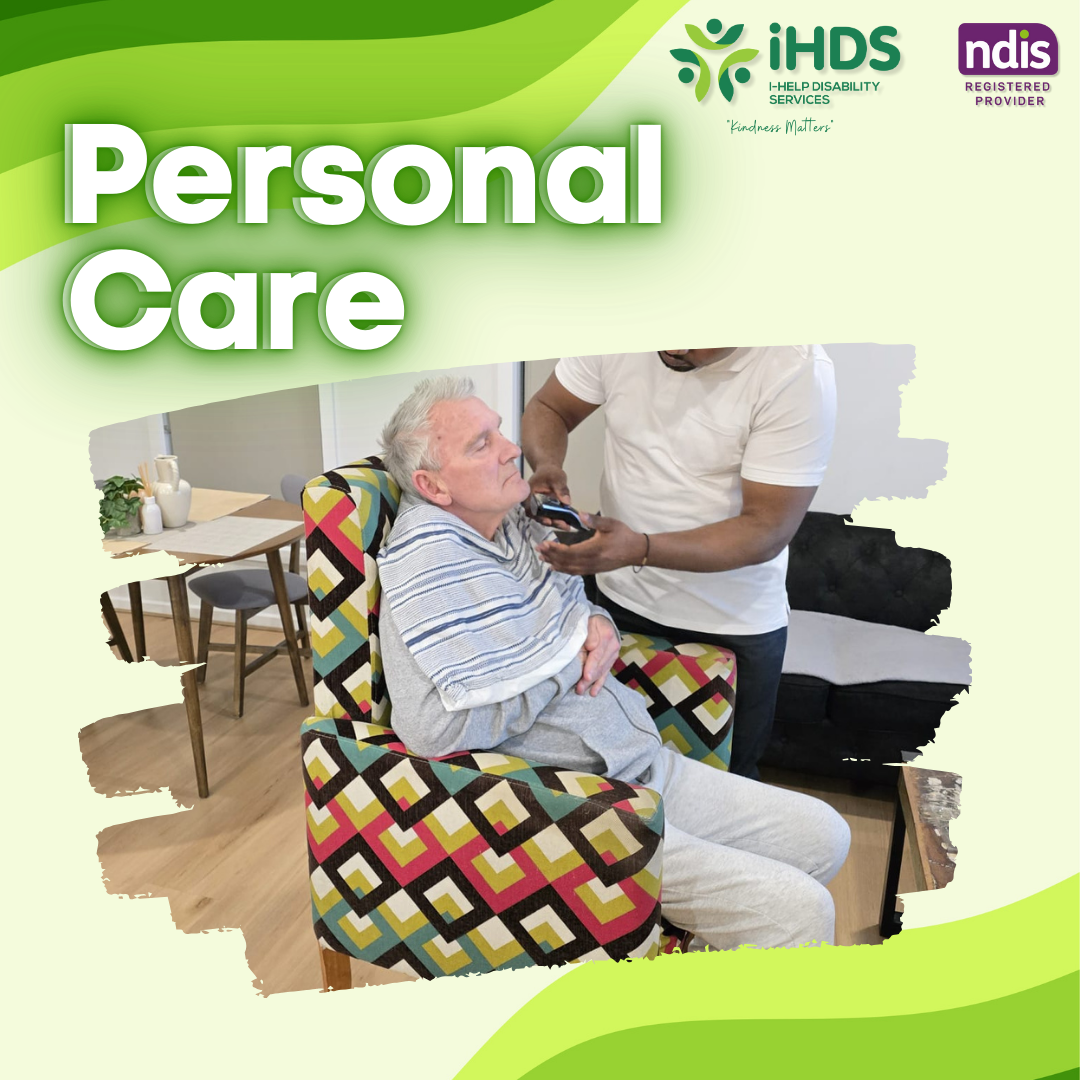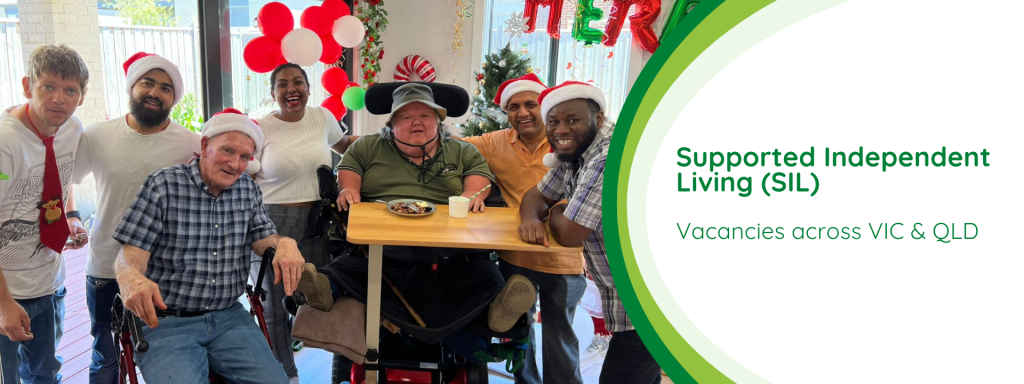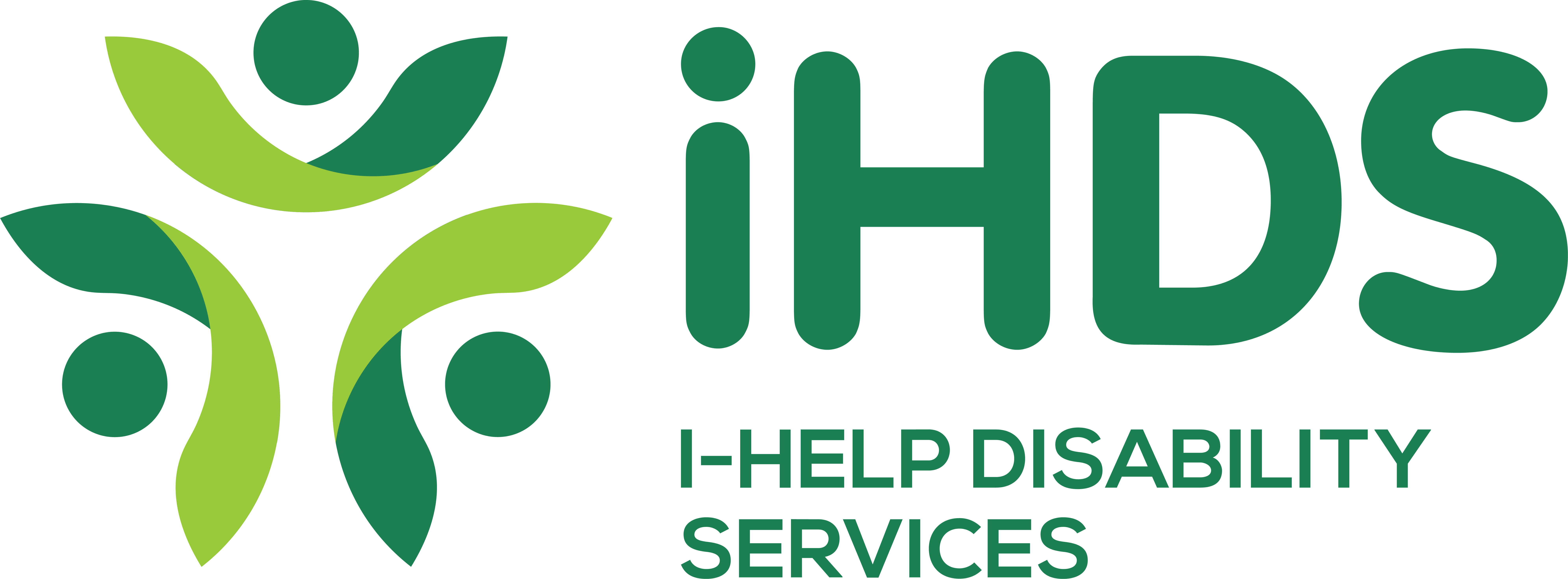Personal Care Support by an NDIS Registered Provider
Understanding Personal Care Support: Enhancing Daily Life and Independence
What is Personal Care?
Personal care support involves assisting individuals with daily activities that they may not be able to complete independently. This essential service ensures that individuals maintain their dignity, hygiene, and overall well-being while fostering independence where possible.
At I-Help Disability Services, we provide personal care support in various settings, including:
- A participant’s private home
- Supported Independent Living (SIL) properties
- Medium-term (MTA) and short-term (STA) accommodations
- Homes shared with family or others
- Holidays and travel settings
Types of Personal Care Support
Personal care services can be broad and tailored to the unique needs of each participant. These supports may include:
- Hygiene Assistance: Showering, bathing, oral care, dressing, and grooming.
- Toileting Support: Bladder and bowel management, menstrual care.
- Nutritional Support: Assistance with eating and drinking.
- Mobility Assistance: Positioning or transferring individuals with mobility challenges.
Why is Personal Care Important?
Providing personal care is more than just assisting with daily tasks—it’s about building trust and ensuring individuals feel respected and valued. Effective personal care can set someone up for a successful day, allowing them to engage in activities that matter most to them.
Key Considerations for Personal Care Providers
- Respect and Trust: Personal care is an intimate service that requires caregivers to foster a strong, respectful relationship with participants.
- Physical Demands: Some personal care tasks require physical assistance, such as supporting mobility or using hoists for transfers.
- Career Growth: Working in personal care can be a stepping stone to more specialised roles in health and disability support services.
How Does the NDIA Assess Personal Care Needs?
Before funding personal care services, the NDIA considers several factors to ensure supports align with a participant’s goals and needs. These include:
- Maximising a participant’s independence and functionality
- Age-appropriate and suitable supports
- Exploring less intrusive alternatives, such as assistive equipment or skill-building programs
For participants requiring higher levels of support, the NDIA assesses:
- High care needs, such as medical conditions or seizure activity
- Physical requirements, including weight and mobility
- Temporary needs, such as support while waiting for home modifications
- Behavioral support requirements
Personal Care and NDIS Funding
Personal care is part of the core supports budget in NDIS plans as Assistance with Daily Life and daily activities in the myplace portal. This funding ensures participants receive the support they need to manage daily living activities while maintaining their independence.
Empowering Participants Through Personal Care
Personal care is a fundamental component of independent living. At I-Help Disability Services, we are committed to delivering compassionate, person-centered support that enhances quality of life. Whether at home or in community settings, our trained caregivers ensure every participant receives the assistance they need while promoting independence wherever possible.
To learn more about personal care supports and how they can be integrated into your plan, visit the NDIA website or reach out to our team at I-Help Disability Services.
Links:

Connect with us:









